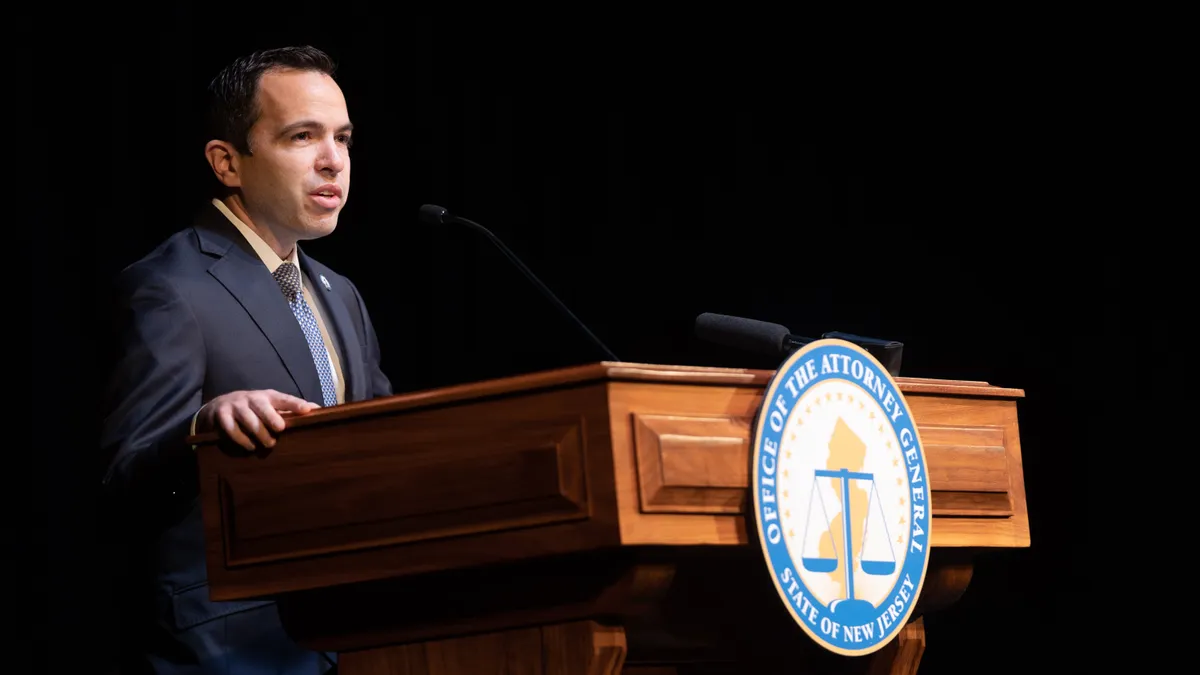Dive Brief:
- A New Jersey judge dismissed the state’s lawsuit that sought to hold major oil companies financially accountable for alleged greenwashing practices and accelerating climate change, according to a ruling issued last week.
- The suit — originally filed in 2022 — alleged that ExxonMobil, BP, Chevron, ConocoPhillips, Phillips 66, Shell and the American Petroleum Institute led a “disinformation campaign to discredit the scientific consensus on climate change” and created “doubts in the minds of consumers … about the climate change impacts of burning fossil fuels.”
- New Jersey’s claims are “entirely about addressing the injuries of global climate change and seeking damages for such alleged injuries,” State Superior Court Judge Douglas Hurd wrote in his Feb. 5 decision. Because of that, Hurd ruled the claims are preempted by federal common law, as a state law cannot govern disputes over the impact of climate change — a claim also made by the defendants.
Dive Insight:
The climate deception suit was originally filed by New Jersey Attorney General Matthew Platkin’s office, the state’s Department of Environmental Protection and the Division of Consumer Affairs in October 2022.
This suit alleged that major oil companies were also responsible for delaying the energy economy’s shift to low-carbon and that their “climate deception campaign” spurred the effect of “inflating and sustaining the market for fossil fuels, which — in turn — drove up greenhouse gas emissions, accelerated global warming, and brought about devastating climate change impacts to the State of New Jersey.”
Hurd sided with the defendants’ reasoning, who argued that applying state law was “constitutionally inappropriate in such cases because the federal courts have uniformly held that state law cannot provide relief for alleged consequences of global climate change.”
“With all due respect to the Plaintiffs’ arguments, this court agrees with the Defendants’ legal position on the issue of ordinary preemption,” Hurd wrote. “Only federal law can govern Plaintiffs’ interstate and international emissions claims because ‘the basic scheme of the Constitution so demands.’”
New Jersey’s climate suit was dismissed without prejudice. The ruling gives the state an opportunity to refile, if it can successfully prove how major oil companies exacerbated climate change in the state and misled consumers with marketing campaigns for its products.
“We are disappointed in today’s decision, which allows some of the country’s most powerful companies to escape accountability for hiding the truth and misleading New Jerseyans about the role their products play in causing climate change,” Platkin’s office said in a statement following the dismissal.
Platkin’s office said the court’s decision was “wrong and inconsistent with decisions in other states,” and that the state would appeal the ruling “immediately.”
“We will not let companies get away with putting profit above public safety,” a spokesperson for the state attorney general’s office added.
Last week’s ruling isn’t the only defeat states have recently faced in their attempts to hold Big Oil responsible for their role in driving climate change and related natural disasters.
Last month, a New York state judge dismissed a lawsuit filed by the city seeking to hold oil companies — all of whom were also named in New Jersey’s suit — accountable for alleged greenwashing practices and accelerating climate change. The Jan. 14 decision from State Supreme Court Justice Anar Patel said New York City had failed to demonstrate that the defendants named in its suit — ExxonMobil, Shell, BP and the American Petroleum Institute — had deceived consumers about the climate impact of their fossil fuel products.











